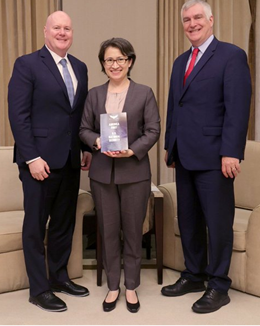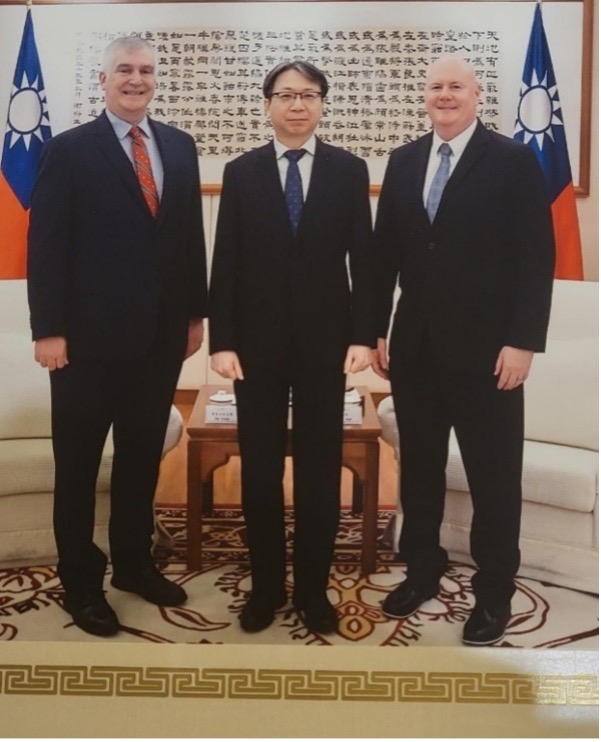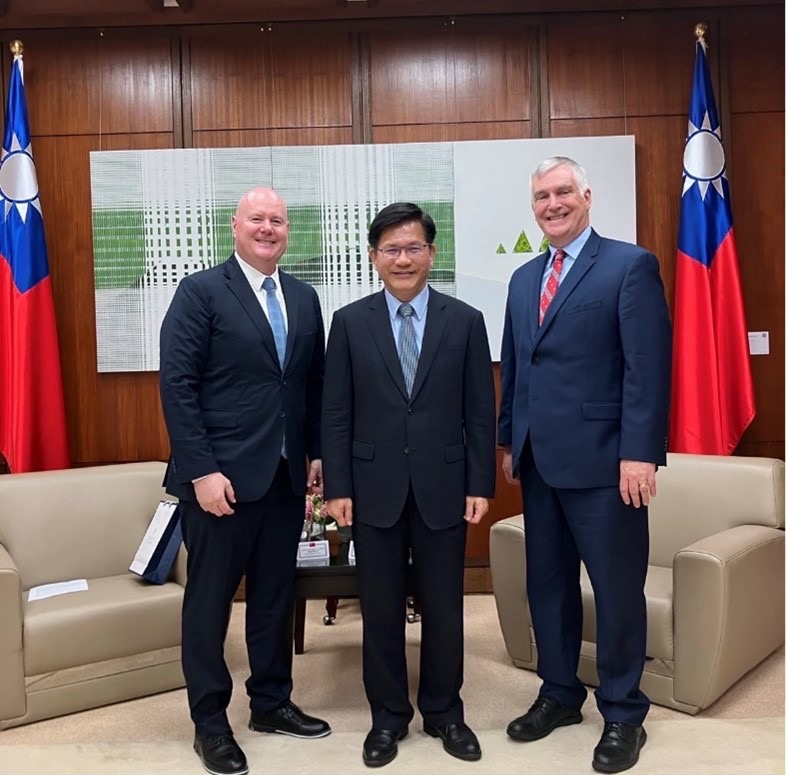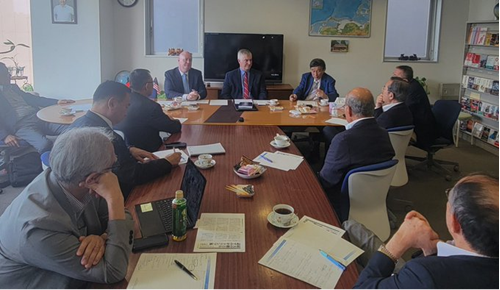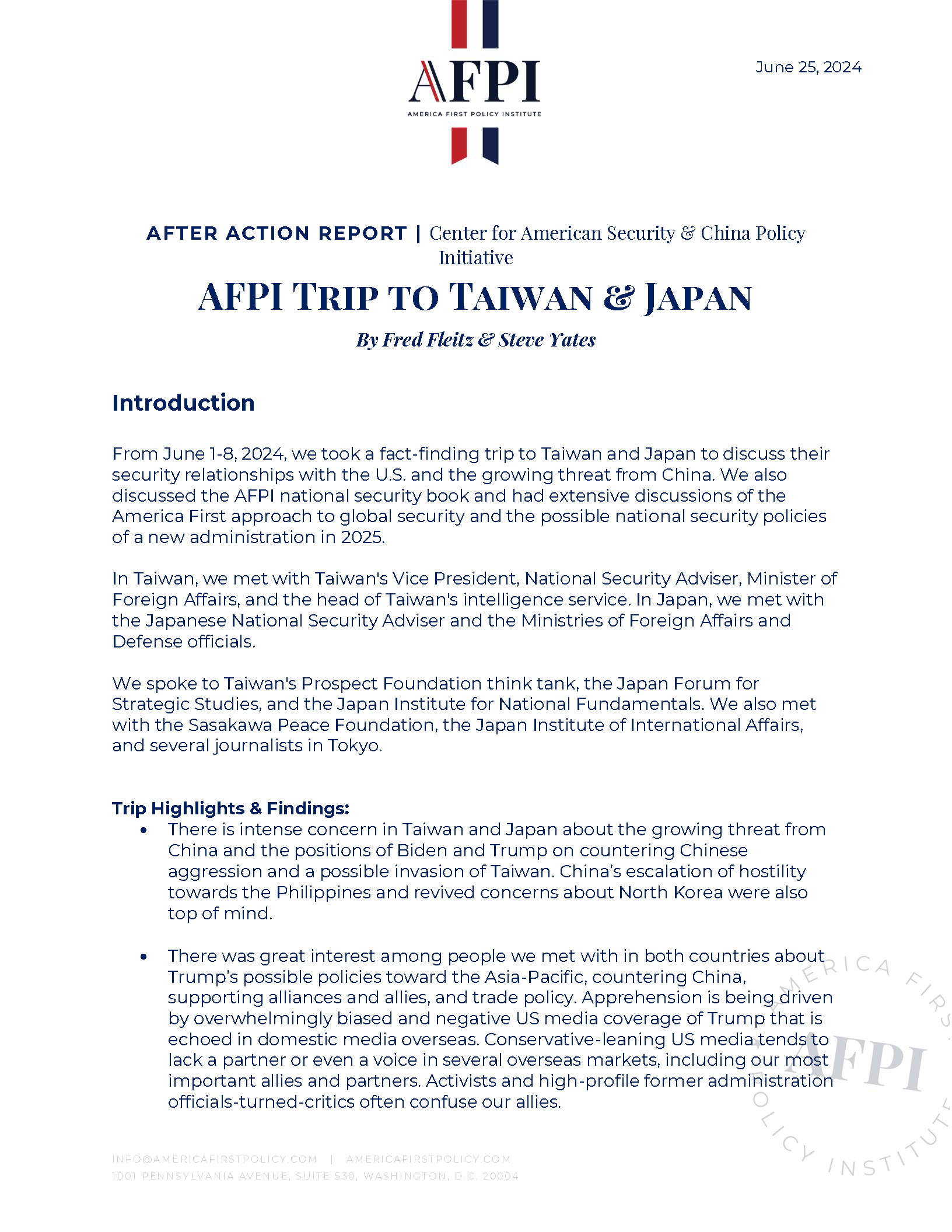AFPI Trip to Taiwan & Japan
Introduction
From June 1-8, 2024, we took a fact-finding trip to Taiwan and Japan to discuss their security relationships with the U.S. and the growing threat from China. We also discussed the AFPI national security book and had extensive discussions of the America First approach to global security and the possible national security policies of a new administration in 2025.
In Taiwan, we met with Taiwan's Vice President, National Security Adviser, Minister of Foreign Affairs, and the head of Taiwan's intelligence service. In Japan, we met with the Japanese National Security Adviser and the Ministries of Foreign Affairs and Defense officials.
We spoke to Taiwan's Prospect Foundation think tank, the Japan Forum for Strategic Studies, and the Japan Institute for National Fundamentals. We also met with the Sasakawa Peace Foundation, the Japan Institute of International Affairs, and several journalists in Tokyo.
Trip Highlights & Findings:
- There is intense concern in Taiwan and Japan about the growing threat from China and the positions of Biden and Trump on countering Chinese aggression and a possible invasion of Taiwan. China’s escalation of hostility towards the Philippines and revived concerns about North Korea were also top of mind.
- There was great interest among people we met with in both countries about Trump’s possible policies toward the Asia-Pacific, countering China, supporting alliances and allies, and trade policy. Apprehension is being driven by overwhelmingly biased and negative US media coverage of Trump that is echoed in domestic media overseas. Conservative-leaning US media tends to lack a partner or even a voice in several overseas markets, including our most important allies and partners. Activists and high-profile former administration officials-turned-critics often confuse our allies.
- Our discussion of these issues was well received because we delivered a message that people in Japan and Taiwan are not hearing. They welcomed explanation of the America First policy agenda in fair and constructive terms.
- The think tanks we met with were grateful for the opportunity to hear about and discuss the America First approach to U.S. and global security. We were told we resolved many of their concerns and misconceptions about this approach.
- We emphasized the absolute commitment to American renewal, economic revival, and energy abundance as a stronger and safer foundation on which to contribute to alliances and partnerships.
- On the growing threat from China, Steve Yates stressed these points:
- Stop the transfer of wealth, technology, and opportunity to an adversary committed to using it against us.
- Reduce dependency on China for strategic goods vital to our national security and resilience during a crisis (strategic decoupling).
- Enhance independent and collaborative capabilities of allies and partners (got that in already).
- Our objective is to contain the malign influences of the Chinese Communist Party (CCP), from a position of strength and reduced risk, with the ultimate aim of reducing tensions, avoiding war, and making it so CCP decisions no longer have a decisive influence over our way of life.
- We helped explain the relevance and priority placed on securing our border. Hostile nations do not believe in America’s commitment to alliances and, therefore, are not deterred if our government fails to protect our homeland and our citizens.
- We noted that more independently capable and collaborative allies increase deterrence by enhancing cooperation with the US and complicating adversarial planning. This is not isolationism or anti-alliance. Quite the opposite. It is a realist approach to engagement and is absolutely pro-alliance.
- Despite contentious politics surrounding nuclear energy in both countries, there was great interest in our America First “all of the above” approach to energy. There is increased recognition that reliable, affordable, and abundant energy is vital to any leading high-tech and manufacturing economy. In general, and especially in times of crisis, that is not possible if overly dependent upon renewables and imported oil and gas. Our shared economic security and national security interests depend upon us getting this right.
- Government officials, think tanks, and journalists in Taiwan and Japan are closely following the 2024 U.S. presidential election. We encouraged all to focus on the America First policy agenda and how best to work with that.
- Many think tank members openly supported the positive foreign policy track record of the Trump presidency and were concerned about the deterioration in many key region during the Biden Administration. Understandably, government officials in Taiwan and Japan were careful not to express a preference.
- Many of the people we met with knew about AFPI. The AFPI book was very useful in our meetings. We gave out 15 copies and provided PDFs. They were well received. Several think tank staffers had already purchased and read the book. Several of the think tank members us if the book would be published in Japanese. Several government staffers in Japan and Taiwan brought copies of AFPI research papers on China and Ukraine to our meetings.
List of Meetings:
Taiwan
- Vice President Bi-Khim Hsiao
- National Security Council Secretary General Joseph Wu
- Foreign Minister Lin Chia-lung
- National Security Bureau Director General Ming-Yen Tsai
- Chairman of Parliament Foreign Affairs & National Defense Committee Wang Ting-yu
- KMT Party Chairman Eric Chu
- Prospect Foundation board of directors, senior management, and senior analysts
- Luis Ko, CEO of I-Mei Foods and owner of multiple companies from cybersecurity to media
Japan
- Takeo Akiba, Secretary-General of the National Security Secretariat
- Keiichi Ichikawa, Assistant Chief Cabinet Secretary and Deputy National Security Adviser
- Kazuo Masuda, Vice-Minister of Defense
- Masataka Okano, Vice-Minister for Foreign Affairs, MOFA
- Kentaro Fujimoto, Deputy Director-General, Foreign Policy Bureau, Ministry of Foreign Affairs (MOFA)
- Yutaka Arima, Director-General, North American Affairs Bureau, MOFA
- Jun Aketa, Principal Executive Advisor for the Mitsui & Co. Global Strategic Studies Institute
- Japan Forum for Strategic Studies (Fleitz and Yates gave a presentation)
- Japan Institute for National Fundamentals (Fleitz and Yates gave a presentation)
- Sasakawa Peace Foundation
- Japanese Institute of International Affairs
- Press interviews with Nikkei News, Sankei Shimbun, Japan Foreward, Fuji TV, and Sekai Nippo newspaper.
Trip Photos
